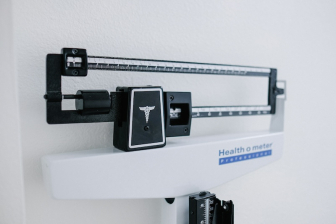Aumolertinib's approval (FDA, EMA, MHRA and more): How long will you have to wait?
Last updated: 10 September 2024

You can legally access new medicines, even if they are not approved in your country.
Learn howAumolertinib, a new third-generation EGFR tyrosine kinase inhibitor, has attracted considerable interest for its potential use in treating non-small cell lung cancer (NSCLC). Already approved in China, the therapy is now making its way through regulatory approval processes around the world.
When can you expect aumolertinib's approval by the FDA, EMA, MHRA, and more? Here's everything you need to know as a patient or caretaker.
What is aumolertinib?
Aumolertinib, known in China under the brand name Ameile, is a third-generation epidermal growth factor receptor (EGFR) tyrosine kinase inhibitor (TKI). It's indicated for the treatment of non-small cell lung cancer (NSCLC), specifically where the EGFR mutation is present 1.
How does aumolertinib work for NSCLC?
In non-small cell lung cancer (NSCLC), some cancer cells have mutations in the EGFR gene, leading to uncontrolled cell growth. Aumolertinib is a tyrosine kinase inhibitor (TKI). It binds to the EGFR’s tyrosine kinase domain, blocking the signaling pathways responsible for the cancer cells' growth and survival 1.
Aumolertinib has shown the ability to inhibit both the common activating EGFR mutations (19 deletions and exon 21 L858R), as well as the T790M resistance mutation 1,2. The T790M mutation often develops after initial treatment with first- or second-generation EGFR inhibitors. It leads to treatment resistance. Aumolertinib could offer a potential solution for this resistance.
Additionally, aumolertinib has been shown to penetrate the blood-brain barrier. This makes it suitable for treating brain metastases, which are common in advanced NSCLC cases 3.
How effective is aumolertinib in clinical trials?
Aumolertinib has been studied in several Phase 2 and Phase 3 clinical trials. Most have been focused on Chinese patients. Below are some of the key reported findings from these trials.
Aumolertinib in pre-treated NSCLC with the EGFR T709M mutation
The Phase 2 APOLLO trial focused on patients with advanced NSCLC, who had developed a resistance to first- or second-generation EGFR TKI therapy 4. The key findings included:
- 68.9% of patients treated with aumolertinib had a partial or complete response to the treatment;
- The median duration of response was 15.1 months;
- The median progression-free survival was 12.4 months.
The APOLLO trial was the basis for aumolertinib's approval in China 4.
Aumolertinib vs gefitinib as a first-line therapy for untreated NSCLC
The Phase 3 AENEAS study compared aumolertinib to gefitinib in treating previously untreated NSCLC patients with the EGFR mutation. The key findings were:
- 73.8% of patients in the aumolertinib group and 72.1% of patients in the genfitinib group had a partial or complete response to the treatment;
- The median progression-free survival was significantly longer for patients treated with aumolertinib (19.3 months) vs patients treated with gefitinib (9.9 months);
- The median duration of response was significantly longer with aumolertinib (18.1 months), compared to gefitinib (8.3 months) 5.
Is aumolertinib approved somewhere?
As of September 2024, aumolertinib (previously known as almonertinib) is only approved in China under the brand name Ameile 6.
When will aumolertinib get FDA approval?
EQRx, the company developing aumolertinib, expects to file for FDA approval around 2027. They believe the final results from an ongoing Phase 3b study will be needed for approval. As a result, they don’t plan to file until the study is complete 7. An FDA approval for aumolertinib is, therofore, unlikely before 2028.
When will aumolertinib get EMA approval?
Aumolertinib's marketing authorization application has been under review by the EMA since December 2022.
Typically, EMA approval decisions take up to 210 days, but in this case, the process is taking longer. The delay may be due to additional information requests the EMA has submitted to the manufacturer. As it has now been almost 2 years since the start of the application review, it is theoretically possible that the EMA approval for aumolertinib comes any day now.
When will aumolertinib be available in Europe?
EMA approval is not the same as availability. From the moment aumolertinib gets marketing authorization in Europe, each EU member state will start its own process of price negotiation, reimbursement, and local launch. Some countries, like Germany, are relatively fast, with an average of 100 days from approval to launch of oncological treatments. Other countries in the EU are considerably slower, however, with Portugal, Poland, Latvia, Estonia and Romania holding the bottom 5 spots. These countries take on average from 753 (Portugal) to 964 days (Romania) to launch a cancer medicine after its EMA approval 8.
Therefore, even if aumolertinib gets EMA approval before the end of 2024, it's going to take at least another year until it's available to patients across the EU.
Is aumolertinib approved by the MHRA?
Aumolertinib's marketing authorization application for the UK was submitted in June 2022. However, as of September 2024, the medicine is not yet approved by the MHRA. Theoretically, it's possible that the treatment gets EMA and MHRA approvals around the same time. However, patients will have to wait to find out if that happens.
When will aumolertinib be available in the UK?
Before the treatment is available on the NHS and to patients, it needs to get an appraisal from NICE. There is an ongoing appraisal for aumolertinib, but with no indication regarding the expected publication date. Assuming that aumolertinib is approved in the UK within 2024 and NICE issues a positive opinion on inclusion on the NHS shortly after, the treatment could theoretically be available to patients in the UK by mid-2025.
How to get aumolertinib before it's approved in your country
Despite what the timelines above suggest, waiting is not the only option for NSCLC patients in the USA, Europe, the UK, or elsewhere.
Since aumolertinib already has one global approval (in China), you can immediately access the medicine anywhere else by importing it for your personal use. This option is known as Named Patient Import, or expanded access. Here's how it works.
Aumolertinib expanded access
Even if a medicine is not yet approved or available in your country, you can legally access it. A regulation known as Named Patient Import allows you to buy and import a medicine, as long as it meets these conditions:
- it is approved somewhere;
- it is not approved or available in your country (yet);
- it has no local alternatives, and
- it is for personal use.
This process requires a prescription from your treating doctor. As in all other cases, the doctor assumes responsibility for the treatment. Per country, specific documentation requirements can vary.
Do you want to start your treatment with aumolertinib as soon as possible, using the Named Patient Import regulation? You will first need to consult your treating doctor and get a suitable prescription.
Already have a prescription? Share it with our team at Everyone.org. We can support you with buying aumolertinib as soon as possible.
References:
- Aumolertinib: A Review in Non-Small Cell Lung Cancer. PubMed, 19 March 2022.
- Successful neoadjuvant treatment of EGFR exon 19 deletion combined with TP53 mutation in non-small cell lung cancer using aumolertinib after osimertinib-induced myocardial damage: a case report and literature review. PubMed, Accessed 10 September 2024.
- EP08.02-051 High-dose Aumolertinib as First-line Treatment in Patients With Brain Metastases Associated With EGFR Mutated NSCLC. Journal of Thoracic Oncology, September 2022.
- Efficacy of Aumolertinib (HS-10296) in Patients With Advanced EGFR T790M+ NSCLC: Updated Post-National Medical Products Administration Approval Results From the APOLLO Registrational Trial. PubMed, Accessed 10 September 2024.
- AENEAS: A Randomized Phase III Trial of Aumolertinib Versus Gefitinib as First-Line Therapy for Locally Advanced or MetastaticNon–Small-Cell Lung Cancer With EGFR Exon 19 Deletion or L858R Mutations. Journal of Clinical Oncology, May 17, 2022.
- Broderick, Jason M. Almonertinib Approved in China for EGFR T79M+ NSCLC. OncLive, 19 March 2020.
- EQRx Provides Portfolio and U.S. Commercial Strategy Updates; Reports Third Quarter 2022 Financial Results. Sec.gov, Accessed 10 September, 2024.
- EFPIA Patients W.A.I.T. Indicator 2021 Survey. EFPIA, Accessed 10 September 2024.




